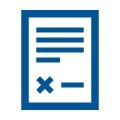Become an Educator
If you’ve found an academic opportunity, this checklist can be used to guide your transition and develop a plan of action. Be sure to click on each action item below for more information and supporting resources.
Still searching for academic opportunities? Start with this checklist.
Please note: This checklist is for your informational use and not intended to replace the advice of professional advisors and specialists, including, but not limited to, attorneys and certified public accountants.
Prepare for possible interviews via phone or web conferencing software
- Learn as much as you can about the institution and department (e.g., mission statement, philosophy, learning goals and objectives, faculty publications, staff information, student enrollment, etc.)
- Write a list of questions to ask during the interview
- Anticipate potential interview questions and make note of specific examples to support your responses
Helpful Resources:
Schedule a visit/interview to the institution
- Request an itinerary before the visit
- Plan to interview with various individuals including administration, faculty, staff, and students
- Prepare to deliver a presentation on a specific topic (if necessary)
- Gather documents to bring with you (CV/résumé, credentials and certifications, references, letters of recommendation, recent publications, previous course syllabi, teaching evaluations)
- Tour the institution, college, and department (consider office space, facility, supplies, equipment, accessibility, parking, surrounding neighborhood, transportation)
- Ask questions about the institution/college and get to know your potential colleagues and staff
- Explore the community (consider educational, recreational, and cultural facilities, cost of living, availability of housing, and climate)
Send “thank you” emails or handwritten letters after each interview or visit
- Show appreciation for the employer’s time and consideration
- Reiterate your interest in the opportunity and the institution
- Restate your qualifications for the position
- Provide any information that may have been requested during the interview
Gather enough information to make an informed decision if and when you receive an offer
- Information about the institution and department
- How does the department function? How does it fit in with the rest of the college?
- What do the chair and/or program director do? How involved is the chair/program director?
- How is the department viewed by their graduate students as well as dental students?
- How much does the institution/college/department value development for new faculty members? Are there opportunities for growth and development?
- Who will be your mentor?
- Is the department open to new ideas? Is change possible?
- What is the financial freedom of the department? (e.g., clinical income, tuition, state support, institutional support)
- Other considerations include: location, facility, administration, staff, students, research, resources, support, reputation, policies and procedures
- Information about the administration and potential colleagues
- Based on your discussions and interactions, do you feel a sense of compatibility and relatability with individuals in the department?
- Do you share similar values and interests?
- Is there team effort or do individuals work in separate groups?
- What emphasis is placed on getting involved in departmental, college-level, campus-level, or state-level activities, as well as regional and national societies?
- Other considerations include: teaching philosophies, research, continuing education, etc.
- Information about the academic position
- What is the type of academic position? (e.g., clinical, tenure-track, faculty, program chair, program director)
- Is it full-time or part-time? (e.g., 1.0 FTE: 4-5 days per week)
- What are the education/teaching responsibilities? (e.g., pre-doctoral, graduate, or both)
- Are there examples of course syllabi for the courses you will be asked to teach?
- What research and/or creative activities are expected? (e.g., publications, oral presentations, other methods of presentations, etc.)
- How is research funded? (e.g., soft versus hard money, awards, grants, etc.)
- What professional and/or clinical service activities does the position entail?
- Other considerations include: length of agreement, compensation, benefits, tenure and promotion process, funding, access to equipment, facilities, and resources, decision-making authority, policies and procedures, and professional development opportunities
Request a draft of the employment agreement after receiving an offer and review with an attorney
- What is the length of the agreement? Are there periodic reviews? (e.g., annual, bi-annual)
- Ensure the employment agreement matches the arrangement discussed
- Share any expectations and reservations with all parties involved
- Work with the attorney and prospective employer to negotiate changes to an agreement (if necessary)








